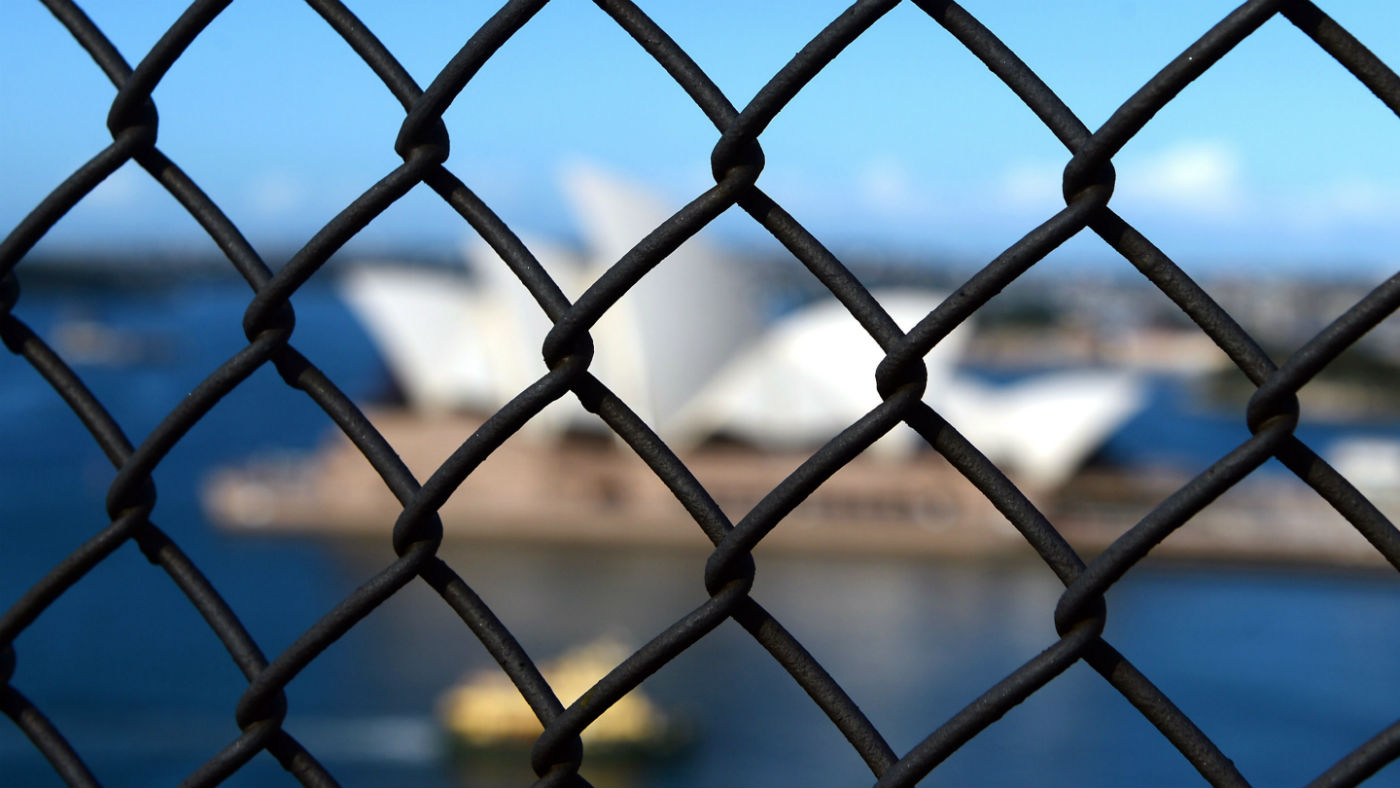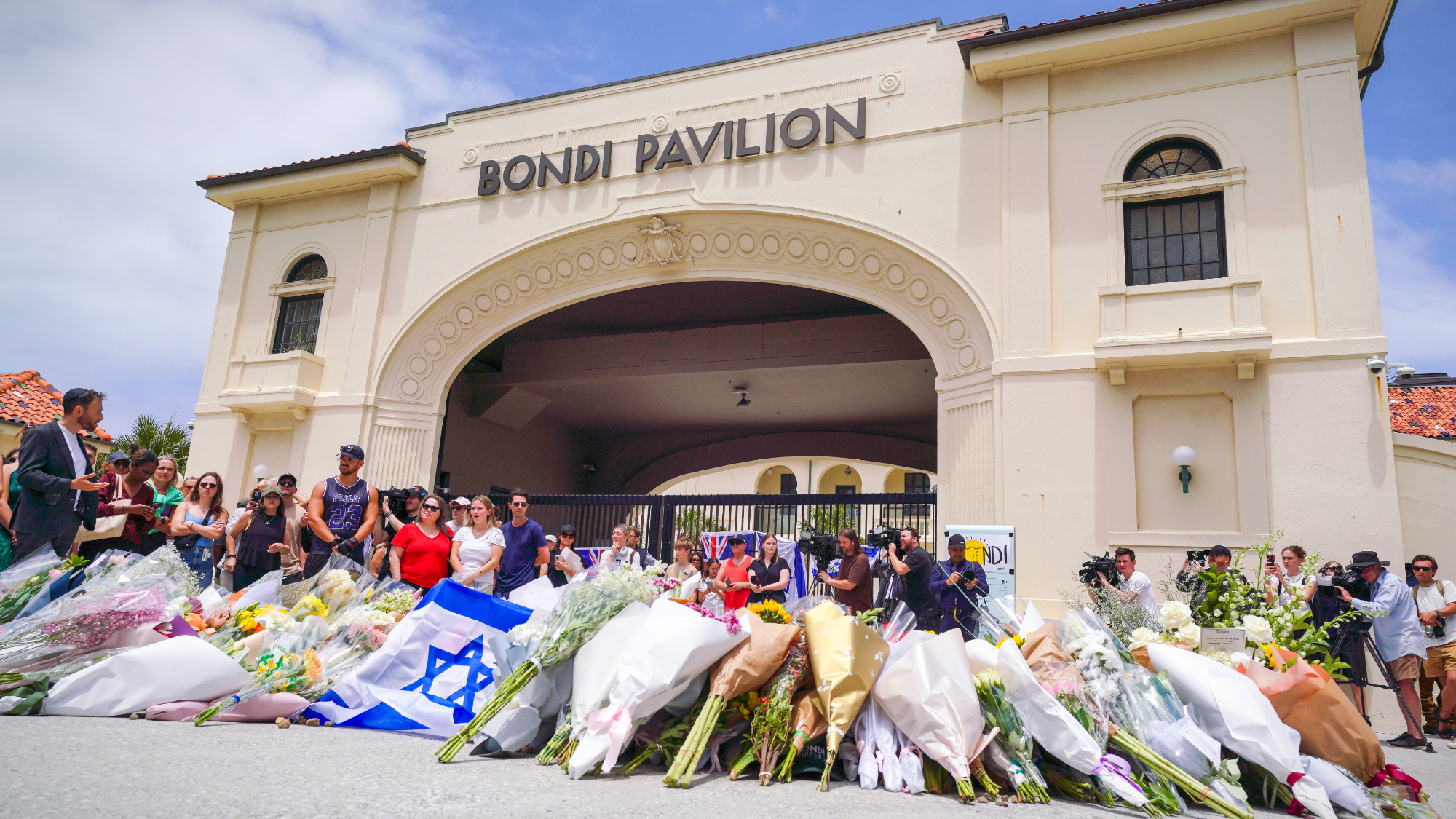Australia considers banning new migrants from big cities
Congestion-busting measures labelled populist gimmick by migration experts and opposition

A free daily email with the biggest news stories of the day – and the best features from TheWeek.com
You are now subscribed
Your newsletter sign-up was successful
Australia is considering banning new migrants from living in its largest cities, under new plans to reduce congestion in urban areas.
Government data reveals that nearly 70% of the 186,000 migrants who moved to Australia last year arrived on skilled migrant visas and nearly all of them settled in Sydney or Melbourne.
Currently, about two-fifths of Australia's 25 million people live in those two cities. “The growth has been driven largely by migration,” says the BBC, and has contributed to infrastructure and congestion problems, with Melbourne and Sydney each expected to exceed eight million residents by 2030.
The Week
Escape your echo chamber. Get the facts behind the news, plus analysis from multiple perspectives.

Sign up for The Week's Free Newsletters
From our morning news briefing to a weekly Good News Newsletter, get the best of The Week delivered directly to your inbox.
From our morning news briefing to a weekly Good News Newsletter, get the best of The Week delivered directly to your inbox.
In a bid to limit the number of migrants to Sydney, Melbourne and Brisbane, Australia’s three biggest conurbations, five medium-sized cities – Darwin, Perth, Hobart, Adelaide and Canberra – would be classed as regional centres for migrants to settle in.
“This would affect the roughly 40% of migrants who have the desired skills and are looking for work on arrival,” says The Independent.
Alan Tudge, the minister for cities, urban infrastructure and population, said: “We aim to ease the population pressure off the three big cities and more rapidly grow the smaller states and regions.”
Immigration, long a hot topic in Australia, is set to be a major issue in next May’s federal election, with some saying the new plans are merely a populist gimmick by the new Prime Minister Scott Morrison to appeal to urban voters.
A free daily email with the biggest news stories of the day – and the best features from TheWeek.com
A ReachTel poll published in September found 63% of Sydney residents surveyed said they supported restrictions on the number of migrants moving to the city.
Some migration experts, such as the former Australian Border Force chief Roman Quaedvlieg, said the government would face big problems implementing the scheme, while others have pointed to Morrison’s own opposition to the plans when he was in opposition.
In 2010, he told ABC that it was “false hope that this this problem’s going to be solved because a population minister is going to fantastically move people around like it has never been done before in our history”.
The government has not set out how the policy would be enforced, although the minister for cities said it could include incentives.
There would also be several exemption categories, including migrants who were sponsored by employers to work where they are needed and those on family reunion visas, which also apply to foreigners marrying Australians.
-
 Film reviews: ‘Send Help’ and ‘Private Life’
Film reviews: ‘Send Help’ and ‘Private Life’Feature An office doormat is stranded alone with her awful boss and a frazzled therapist turns amateur murder investigator
-
 Movies to watch in February
Movies to watch in Februarythe week recommends Time travelers, multiverse hoppers and an Iraqi parable highlight this month’s offerings during the depths of winter
-
 ICE’s facial scanning is the tip of the surveillance iceberg
ICE’s facial scanning is the tip of the surveillance icebergIN THE SPOTLIGHT Federal troops are increasingly turning to high-tech tracking tools that push the boundaries of personal privacy
-
 Israel retrieves final hostage’s body from Gaza
Israel retrieves final hostage’s body from GazaSpeed Read The 24-year-old police officer was killed during the initial Hamas attack
-
 China’s Xi targets top general in growing purge
China’s Xi targets top general in growing purgeSpeed Read Zhang Youxia is being investigated over ‘grave violations’ of the law
-
 Panama and Canada are negotiating over a crucial copper mine
Panama and Canada are negotiating over a crucial copper mineIn the Spotlight Panama is set to make a final decision on the mine this summer
-
 Why Greenland’s natural resources are nearly impossible to mine
Why Greenland’s natural resources are nearly impossible to mineThe Explainer The country’s natural landscape makes the task extremely difficult
-
 Iran cuts internet as protests escalate
Iran cuts internet as protests escalateSpeed Reada Government buildings across the country have been set on fire
-
 US nabs ‘shadow’ tanker claimed by Russia
US nabs ‘shadow’ tanker claimed by RussiaSpeed Read The ship was one of two vessels seized by the US military
-
 Australia weighs new gun laws after antisemitic attack
Australia weighs new gun laws after antisemitic attackSpeed Read A father and son opened fire on Jewish families at Sydney’s Bondi Beach, killing at least 15
-
 How Bulgaria’s government fell amid mass protests
How Bulgaria’s government fell amid mass protestsThe Explainer The country’s prime minister resigned as part of the fallout